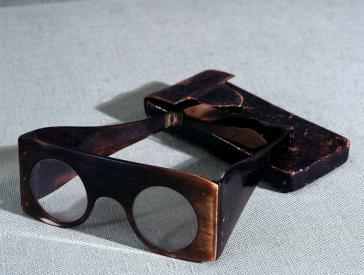Leo Baeck
Rabbi
Leo Baeck (1873–1956) played an important role for German Jewry and was a guiding figure for persecuted and disenfranchised Jews during the era of Nazi rule.
Rabbi and Philosopher of Religion
Baeck was born in Lissa, Posen (now Leszno, Poland). Following in the footsteps of his father Dr. Samuel Baeck, he decided to become a rabbi. Leo Baeck studied in Breslau and Berlin and graduated in 1895 with a thesis about the seventeenth-century philosopher Baruch Spinoza (1632–1677).
The first edition of The Essence of Judaism, Baeck's most famous work, was published in 1905. It is a systematic presentation of the Jewish religion composed in response to The Essence of Christianity (1900) by the influential Christian theologian Adolf von Harnack, which had denigrated Judaism as sordid and inferior.
In 1907, Baeck began to serve as a rabbi in Düsseldorf. In late 1912, the Jewish Community of Berlin appointed him rabbi; he remained in office there for over thirty years. He lectured at the Hochschule für die Wissenschaft des Judentums (Higher Institute for Jewish Studies) and counseled Jewish soldiers in the German forces as a chaplain rabbi.
Spokesperson for German Jews
As one of the leading figures of German Jewry, respected by liberal and orthodox Jews alike, Leo Baeck held various high offices. In 1933, he was appointed president of the Reich Representation of Jews in Germany. The Jewish communities had joined forces to create this association in the hope of being better able to defend their rights under the National Socialist regime.
Deportation and Survival
Despite countless appeals and opportunities, Baeck refused to escape into exile. He helped others to leave Germany, but he himself remained to represent those who had no way of escaping. His wife Natalie died in 1937 and was buried in the Jewish cemetery in Berlin's Weissensee district. In January 1943, Leo Baeck was deported to the concentration camp in Theresienstadt where he became a member of the prisoners'
Council of Elders.
Leo Baeck survived the camp. In 1945, after it was liberated, he moved to London, where his daughter had already been living since 1938. The Council of Jews from Germany appointed Baeck as its president. This union strove for the representation of Jews who had fled Germany to different countries, working to secure the return of their property that had been stolen or seized during the Nazi era, for example.
Postwar Honors
In the postwar years, Baeck was firmly committed to encouraging dialogue between Jews and non-Jews and he gave numerous lectures in Germany. Federal President Theodor Heuss awarded him the Order of Merit of the Federal Republic of Germany in 1953. In 1955, he became the president of the institute named in his honor, the Leo Baeck Institute, a research institution with an archive on German Jewry. A branch of the archive can also be found at the Jewish Museum Berlin (learn more).
Leo Baeck died in London in 1956.



